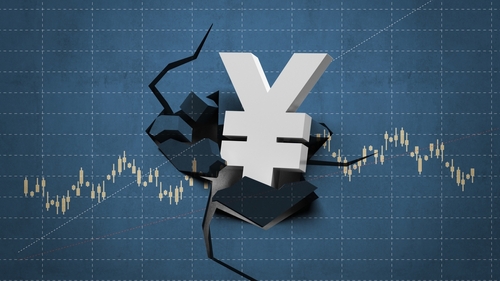|
|
The Bank of Japan’s intransigence in maintaining rock-bottom interest rates while other nations raise theirs sank the yen last week to its lowest value against the dollar in 24 years, reaching ¥144 to the dollar.
The yen has given up about 20 percent of its value so far this year, languishing at ¥142.76 on 12 September.
Investors can earn higher returns by putting money into other currencies, leaving the yen with less and less appeal.
The yen’s sell-off sped up on 7 September after a report that the U.S. service economy had grown more than expected in August, the Financial Times reported.
The Bank of Japan has calculated that low interest rates and a weak yen will make the country’s exports cheaper abroad, doing more good for its ailing economy than the damage a feeble currency will incur.
The bank has pledged to buy an unlimited number of 10-year government bonds at an interest rate no higher than 0.25 percent.
In contrast, U.S. 10-year bonds were fetching 3.35 percent on 6 September.
Leveraged investment funds began betting against the yen last spring, which has added to its slide over the past several months, the FT noted.
However, the funds softened their positions recently, fearing that the risk of recession might persuade the bank to loosen its rate policy, the FT added.
The yen’s dramatic move was not desirable, finance minister Sunichi Suzuki said in a public statement.
The yen should maintain a stable value, he stressed, adding that “we will take necessary action if this continues.”
The yen’s frailty spread to South Korea, where the won slid to its lowest value since 2009 during the Great Recession.
The currency was hit not only by the U.S.’s aggressively higher interest rates, but also by the Asian nation’s ballooning national debt and the world’s economic slowdown, shrinking markets for the exports on which South Korea’s economy depends.
TREND FORECAST: Japan’s central bank is walking a thin line.
The country’s population is among the world’s oldest, leaving millions of citizens on fixed incomes vulnerable to rising interest rates.
However, inflation creates an equal vulnerability. Japan imports most of its raw materials, including fossil fuels.
With inflation soaring in Europe and the U.S. and with more central banks raising interest rates, we forecast that the BOJ will be forced to raise interest rates despite the bank’s current policy.

